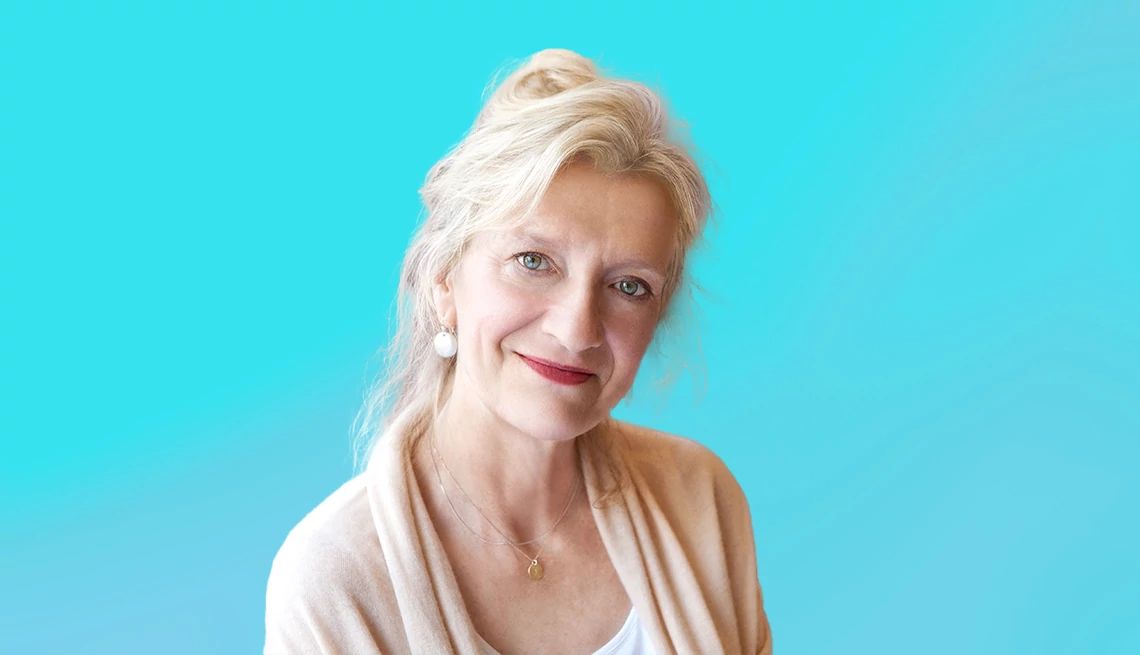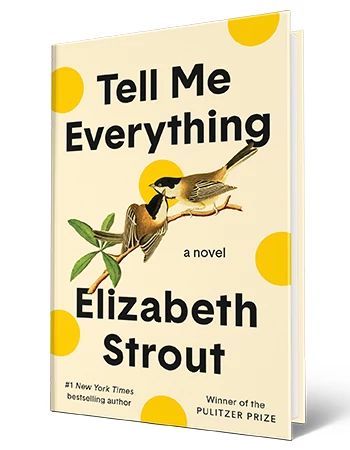AARP Hearing Center


Author Elizabeth Strout, 68, says that despite what people might think, her debut book was a long time coming. “Everybody said, ‘Oh, what an overnight success,’ ” she says of Amy and Isabelle, which became a best-selling novel when Strout was 42. “Nobody knew I was writing. I stopped telling people years ago because it was too embarrassing — it’s not like I had anything published — so everyone was surprised by it.”
Her third book, Olive Kitteridge, won a Pulitzer Prize for fiction and was adapted into an Emmy Award–winning TV miniseries; and her latest novel, Tell Me Everything, out Sept. 10, introduces Kitteridge to Strout’s beloved characters Lucy Barton and Bob Burgess. Strout shares with AARP the ups and downs of her writing journey, the advice she’d give to a young writer and how she feels about aging.
This interview has been edited for length and clarity.


AARP Membership— $12 for your first year when you sign up for Automatic Renewal
Get instant access to members-only products and hundreds of discounts, a free second membership, and a subscription to AARP the Magazine.
You graduated from the Syracuse University College of Law in 1982. What led you to choose law school?
I had a social conscience, and I thought, OK, I’m going to go and do good work. It was about that time some restaurant in Boston had been closed by lawyers for having been prejudiced against Black people. And I thought, Wow, lawyers can actually get that done. I was really impressed with that. So I thought, I’m going to go to law school, and I’m going to do that kind of work. And then I will continue to write at night. Which, of course, is pretty ill-advised.
That wasn’t a straight path either, was it?
I worked in a department store [in Syracuse] after I had dropped out of law school for a year. I wasn’t very good at it. They sent me up to sell mattresses on the eighth floor. I started on the second floor with women’s stuff, but I didn’t apparently sell well enough, and so they sent me up to mattresses. I never sold a mattress, so I went back to law school because I realized I was very interested in elderly people. The elderly women that would come into the store and stay in the women’s lounge the whole day were very, very affecting to me. I realized that they were lonely, that they had no place to go, and I thought, I’m gonna go back to law school, and I’m going to be an elder lawyer, and I’m gonna have a storefront right here on Main Street, and they can come and stay all day long if they want to. So that was my plan that got me back to law school to finish.


What made you pivot to writing?
I always wanted to be a writer, but nobody was even remotely interested in my work. I think I was about 16 [when] I started to send stories out [to publishers]. I could get nothing except the basic rejection notes for years. And so I was a little discouraged, I will admit. I was working as a waitress and a piano player and just doing millions of jobs. A lot of things I would try and do at night, so that I could have my days free.




























































You Might Also Like
Jodi Picoult: ‘When I Think About Myself, I’m Not 58, I’m 19’
Bestselling author talks new writing projects, keeping fit in her 50s, becoming a grandparent
Moon Unit Zappa Writes New Memoir, ‘Earth to Moon’
Book reveals details of her childhood, career and sibling drama over family fortuneKelly Ripa on Her Empty Nest and How She Really Feels About Mornings
Morning show host talks book picks, beauty tips, favorite ‘Live With Kelly and Mark’ memories
Recommended for You